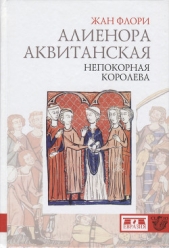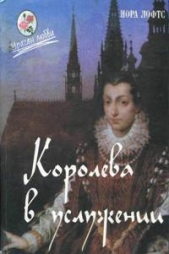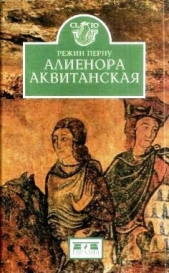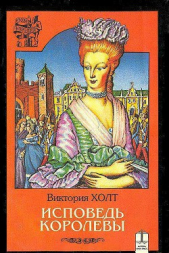Алиенора Аквитанская. Непокорная королева

Алиенора Аквитанская. Непокорная королева читать книгу онлайн
Алиенора Аквитанская (1124–1204) — одна из самых известных женщин западноевропейского средневековья. История её жизни напоминает бурлескный роман, где на фоне политических интриг и зарождавшейся куртуазной культуры переплелись мотивы любви, ненависти, выгоды и жажды приключений. Внучка и наследница первого трубадура и могущественнейшего правителя Южной Франции, герцога Аквитанского Гильома IX, Алиенора унаследовала непокорный нрав своего великого предка. В эпоху, когда власть принадлежала мужчинам, она шла наперекор устоявшимся традициям и никогда не соглашалась быть не более чем супругой, пусть даже и королей: Алиенора стремилась сама выбирать себе мужа, управлять своими землями, активно участвовала в политических событиях; не случайно одной из самых ярких вершин её жизни стало участие во Втором крестовом походе. Побывав супругой французского короля Людовика VII, она вышла замуж за будущего английского государя Генриха II Плантагенета и вместе с ним основала сильнейшую державу западноевропейского средневековья — «империю Плантагенетов», состоявшую из Англии и доброй половины Франции. Сыновьями Алиеноры были прославленный король-рыцарь — Ричард Львиное Сердце и пресловутый Иоанн Безземельный. Дожив до восьмидесяти лет, Алиенора Аквитанская прошла через горнила многих искушений и испытаний, познала горечь поражений и плена, но всегда шла наперекор судьбе.
Внимание! Книга может содержать контент только для совершеннолетних. Для несовершеннолетних чтение данного контента СТРОГО ЗАПРЕЩЕНО! Если в книге присутствует наличие пропаганды ЛГБТ и другого, запрещенного контента - просьба написать на почту [email protected] для удаления материала
Foreville, R., L’Église et la royauté en Angleterre sous Henri II Plantagenêt, 1154–1189, Paris, 1943.
Frappier, J., «Sur un procès fait à l’amour courtois», Romania, 93, 1972, p. 141–193.
Fridman, R., «Les troubadours et leurs commentateurs», dans Le féodalisme, recherches internationales à la lumière du marxisme, 1963, № 37, p. 139–172.
Gaunt, S. B., «Marginal Men, Marcabru and Orthodoxy: The Early Troubadours and Adultery», Medium Aevum, 59, 1990, p. 55–72.
Genet, J.-Ph., «Histoire politique anglaise, histoire politique française», dans Autrand, F., Gauvard, C, et Mnglin, J.-M. (dir.), Saint-Denis et la royauté: études offertes à Bernard Guenée, Paris, 1999, p. 621–636.
Gillingham, J., «Conquering Kings: some Twelfth Century Reflections on Henri II and Richard I», dans Reuter, T. (éd.), Warriors and Churchmen in the High Middle Ages: Essays presented to Karl Leyser, Londres, 1995, p. 163–178.
Gillingham, J., «Kingship, Chivalry and Love. Political and Cultural Values in the Earliest History written in French: Geoffrey Gaimar’s Estoire des Engleis», dans C. W. Ollister (éd.), Anglo-Norman Political Culture and the Twelfth Century Renaissance (Proceedings of the Borchard Conference on Anglo-Norman History, 1995), Londres, 1997, p. 33–58.
Gillingham, J., «Love, Marriage and Politics in the Twelfth Century», Forum for Modern Language Studies, 25, 1989.
Gillingham, J., Richard I, New Haven-Londres, 1999.
Gillinham, J., Richard Cœur de Lion, Paris, 1996 (trad. de Richard the Lionheart, Londres, 1978).
Gillinham, J., Richard Cœur de Lion, Kingship, Chivalry and War in the Twelfth Century, Londres, 1994, p. 119–139.
Gillinham, J., «The Travels of Roger Howden and his View of Irish, Scotts and Welsh», Anglo-Norman Studies, 20, 1997, p. 151–169.
Glasser, M., «Marriage and the Use of Force in Yvain», Romania, 108, 1987, p. 484–502.
Gobry, I., Louis VII, père de Philippe Auguste, Paris, 2002.
Goldin, F., «The Array of Perspectives in the Early Courtly Love Lyric», dans Ferrante, J.M. et Economou, G.D. (éd.), In Pursuit of Perfection: Courtly Love in Medieval Littérature, Port Washington, 1975, p. 51–100.
Gouiran, G., «”Car tu es cavaliers e clercs” (Flamenca, v. 1899): Guilhem ou le chevalier parfait», Le clerc au Moyen Âge (Senefiance, № 37), 1995, p. 198–214.
Gouttebroze, J.-G., «Pourquoi congédier un historiographe? Henry II Plantagenêt et Wace (1155–1174)», Romania, 112, 1991, p. 289–311.
Gouttebroze, J.-G., «Henri II Plantagenêt, patron des historiographes anglo-normands en langue d’o”l», dans La Littérature angevine médiéval, Actes du colloque du samedi 22 mars 1980, Angers, 1981, p. 91–109.
Grandsen, A., «Propaganda in English Medieval Historiography», Journal of Medieval History, 1, 1975, p 362–382.
Grandsen, A., «The Growth of Glastonbury: Traditions and Legends», Journal of Ecclesiastical History, 27, 1976, p. 337–438.
Grant, L., «Le patronage architectural d’Henri II et de son entourage», Cahiers de Civilisation Médiévale, 37, 1994, p. 73–84.
Green, J. A., The Aristocracy of Norman England, Cambridge, 1997.
Greene, V., «Qui croit au retour d’Arthur?», Cahiers de Civilisation Médiévale, 45, 2002, p. 321–340.
Grossel, M.-G., «”Savoir aimer, savoir le dire”, notes sur les débats du Clerc et du Chevalier», dans Le Clerc au Moyen Âge (Senefiance, № 37), 1995, p. 279–293.
Guerreau-Jalabert, A., «Fées et chevalerie. Observations sur le sens social d’un theme dit merveilleux», dans Miracles, prodiges et merveilles au Moyen Âge (XXV Congrès de la S.H.M.E.S., Orléans, juin 1994), Paris, 1995, p. 133–157.
Harf-Lancner, L., «L’enfer de la cour: la cour d’Henri II Plantagenêt et la Mesnie Hellequin», dans L’État et les aristocraties (France, Angleterre, Écosse) (XIIe−XVIIc siècles), dir. Ph. Contamine, Paris, 1989, p. 29–50.
Harvey, R. E., The Troubadour Marcabru and Love, Londres, 1989.
Haskins, C. H., «Henri II as a Patron of Literature», Essays in Medieval History presented to Thomas Frederick Toul, éd. A. G. Little et F. M. Powicke, Manchester, 1925, p. 71–77.
Hays, H. R., The Dangerous Sex: The Myth of Feminine Evil, New York, 1964.
Herlihy, D., «Land, Family and Women in Continental Europe from 700 to 1200», Traditio, 18, 1962, p. 89–120.
Heron, A., «La chasse royale de la chapelle Sainte-Radegonde à Chinon», Archeologia, 2, janv.−fév. 1965, p. 81–96.
Higonnet, E. C., «Spiritual Ideas in the Letters of Peter of Blois», Speculum, 50, 1975, p. 218–244.
Hillion, Y., «La Bretagne et la rivalité Capétiens-Plantagenêts. Un exemple: la duchesse Constance (1186–1202)», Annales de Bretagne, 92, 1985, p. 111–144.
Hissette, R., «André le Chapelain et la double vérité», Bulletin de Philosophie Médiévale, 21, 1979, p. 63–67.
Hollister, С. V. (dir.), Anglo-Norman Political Culture and the Twelfth Century Renaissance, Woodbridge, 1997.
Hollister, С. V. et Baldwin, J., «The Rise of Administrative Kingship: Henry II and Philip Augustus», American Historical Review, 83, 1978, p. 867–905.
Huchet, J.-Ch., L’Amour discourtois. La «Fin’Amors» chez les premiers troubadours, Paris, 1987.
Huneycutt, L. L., Matilda of Scotland and the Development of Medieval Queenship, Woodbridge, 2003.
Huneycutt, L. L., «Public Lives, private Ties: Royal Mother in England and Scotland, 1070–1204», dans Parsons J. C. et Wheeler, B. (éd.), Medieval Mothering, New York, 1996, p. 295–311.
Imbs, P., «La reine Guenièvre dans Le chevalier au lion», dans Études de la langue et de littérature du Moyen Âge offerts à Félix Lecoy, Paris, 1973, p. 243 sq.
Isabelle d’Angoulême, comtesse-reine et son temps (1186–1246), Poitiers, 1999 (в частности, статья E. Carpentier, p. 37–45).
Jacquart, D. et Simonet, C., Sexualité et savoir médical au Moyen Âge, Paris, 1983.
Jaeger, C. S., Medieval Humanism in Gottfried von Strassburg’s Tristan and Isolde, Heidelberg, 1977.
Jaeger, C. S., The Origins of Courtliness, Civilizing Trends and the Formation of Courtly Ideals, 939–1210, Philadelphie, 1985.
Jaeger, C. S., «L’amour des rois: structure sociale d’une forme de sensibilité aristocratique», Annales, 1991, 3, p. 547–571.
Jaeger, C. S., Ennobling Love. In Search of a Lost Sensibility, Philadelphie, 1999.
Johanek, P., «König Arthur die Plantagenets. U?ber den Zusammenhang von Historiographie und höfischer Epik in mittelalterlicher Propaganda», Frü hmittelalterliche Studien, 21, 1987, p. 346–389.
Jordan, W. C., «Isabelle d’Angoulême, By the Grace of God, Queen», Revue belge de Philologie et d’histoire, 69, 1991, p. 821–852.
Karnein, A., «Auf der Suche nach einem Autor: Andreas, Verfasser von “De amore”», Germanisch-Romanische Monatsschrift, 59, 1978, p. 1–20.
Karnein, A., «La réception du De Amore d’André le Chapelain au XIIIe siècle», Romania, 102, 1981, p. 324–351 et 501–542.
Kay, S., «Courts, Clerks and Courtly Love», dans Krueger, R. L. (éd.), The Cambridge Companion to Medieval Romance, Cambridge, 2000, p. 81–96.
Keller, H. E., «La Chanson de Roland, poème de propagande pour le royaume capétien du milieu du XIT siècle», Travaux de Linguistique et de Littérature, 14, 1, 1976, p. 229–241.
Keller, H. E., «Wace et les Bretons», Actes du 14e Congrès International Arthurien, Rennes, 1985, t. II, p. 354–370.
Kelly, D., «Le patron et l’auteur dans l’invention romanesque», dans Baumgartner, E. et Marchello-Nizia, C. (éd.), Théories et pratiques de l’écriture au Moyen Âge, Paris, 1988, p. 25–39.
Kelly, D., «Courtly Love in Perspective: the Hierarchy of Love in Andreas Capellanus», Traditio, 24, 1968, p. 119–147.
Kendrik, L., The Game of Love: Troubadour Wordplay, Berkeley, 1988.
Knapp, F. P., «De l’aventure profane à l’aventure spirituelle. Le double esprit du Lancelot en Prose», Cahiers de Civilisation Médiévale, 1989, 3, p. 263–266.

























